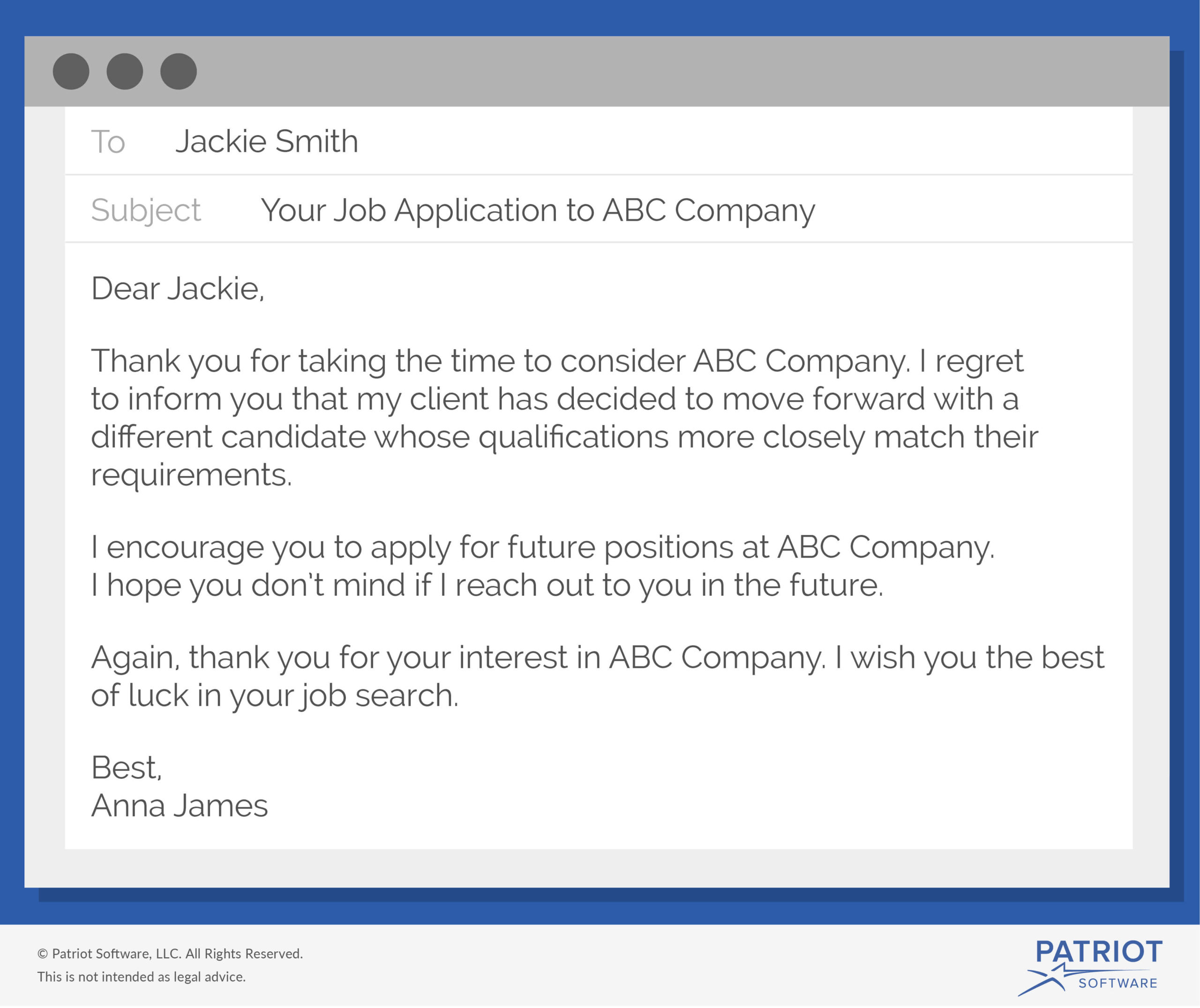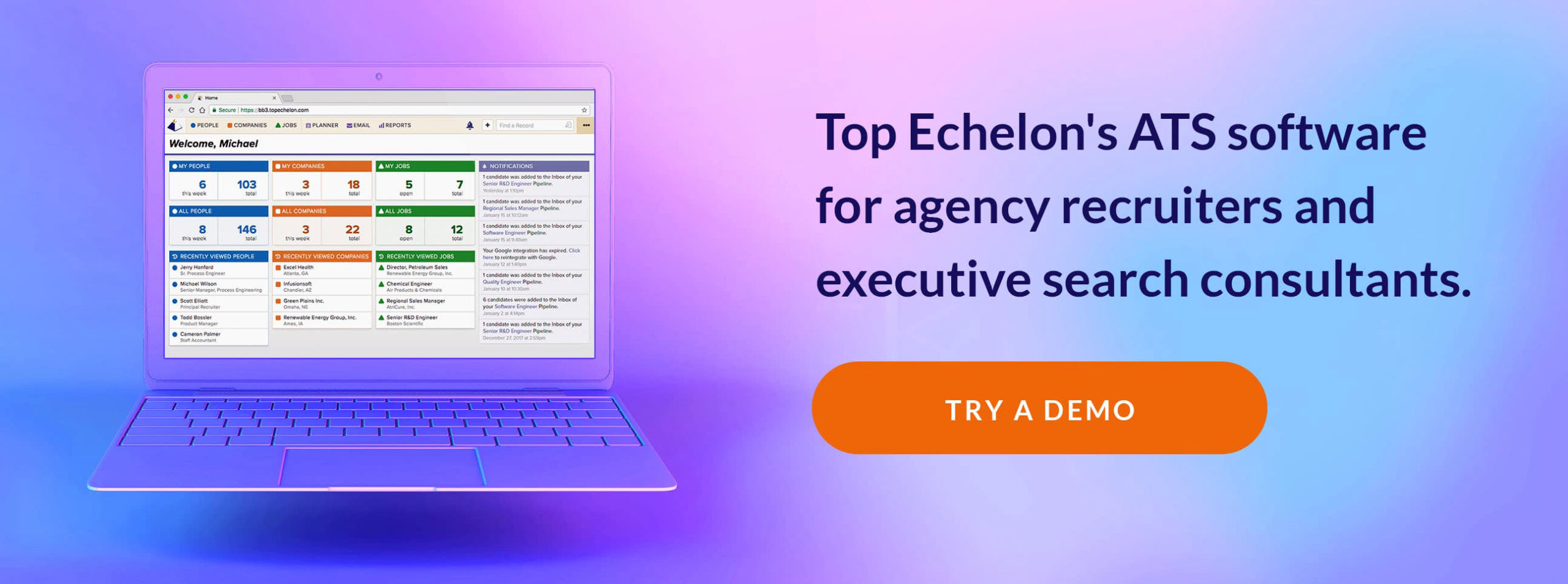When it comes to successfully filling job orders, connecting with candidates is key. You might have dozens or even hundreds of applicants vying for the open job, but your client will only choose one to hire.
It’s important to let candidates know when they don’t get the job. Many hiring managers tell unsuccessful candidates they are no longer considered via email. How do you write a job rejection email?
Job rejection email
A rejection email lets candidates know that they are no longer considered for an open position. The job rejection email is usually short and to the point. Sending a job rejection email that is too specific can take up your time and open the door to lawsuits over unlawful discrimination.
You can use a generic rejection letter template for each candidate. A short, vague rejection email can save you time as well as protect your recruiting business and your client. It’s a good idea to have a lawyer review your job rejection letter template before you start sending it out.
Some companies choose to forego a job rejection letter, which can leave candidates confused about whether they are still in the running or not. Other companies only send a rejection email after interviews.
As a recruiter, each applicant has the potential to be a candidate in future client orders. You don’t want to sour relations by not keeping candidates updated on their job status. Improve candidate relationship management with your candidate pool by sending a candidate rejection email.
How to write a job rejection email
Job rejection emails should be short and generic, but there are a few points you might want to cover. Here are some important parts of a job application rejection letter:
Your email subject line should be clear so candidates know you are reaching out to them to talk about their application. The subject line could say something like Job Application to ABC Company.
In the email, you need to address the candidate by name. Don’t just say Dear Applicant. Use the candidate’s name to begin the letter.
You must thank the candidate for their consideration in your client’s company and the open position. Do this in the body of the email. Don’t linger on this topic, however. Move on to the part the candidate is waiting for — whether or not they got the job.
Tell the candidate your client will be moving forward with a different candidate. Or, you can say that the position has been filled. Make sure you get straight to the point. Do not give details about the successful candidate(s). Don’t explain specifics on why the candidate did not advance over email. If the candidate asks you why they did not get the job, you can choose whether you want to provide feedback. Again, be careful what you say, as they can accuse you and your client of unlawful discrimination.
If your client thought the candidate would be a good fit in the company but not the position they applied for, tell them. You can ask the candidate to apply for a future opening with the company. Do not ask candidates to apply in the future if you and your client don’t mean it.
Wish the candidate the best in their job search. End the job rejection email on a positive note.
At the end of the email, sign your name.
Above all else, your rejection email should be respectful of the candidates. Though it should be generic, your rejection email shouldn’t be cold.
Sample job rejection letter
You might choose to have different job rejection letter templates for various stages in the hiring process. Here is a candidate rejection letter sample you could use at any point in the hiring process:
Going forward
Keep candidate information in your recruiting software. When you receive future job orders, you can contact qualified individuals in your candidate pool.
Make sure you provide the best candidate experience, even when you have to tell applicants they didn’t get the job. Maintain good relationships with all candidates by keeping in touch and letting them know about upcoming opportunities.


